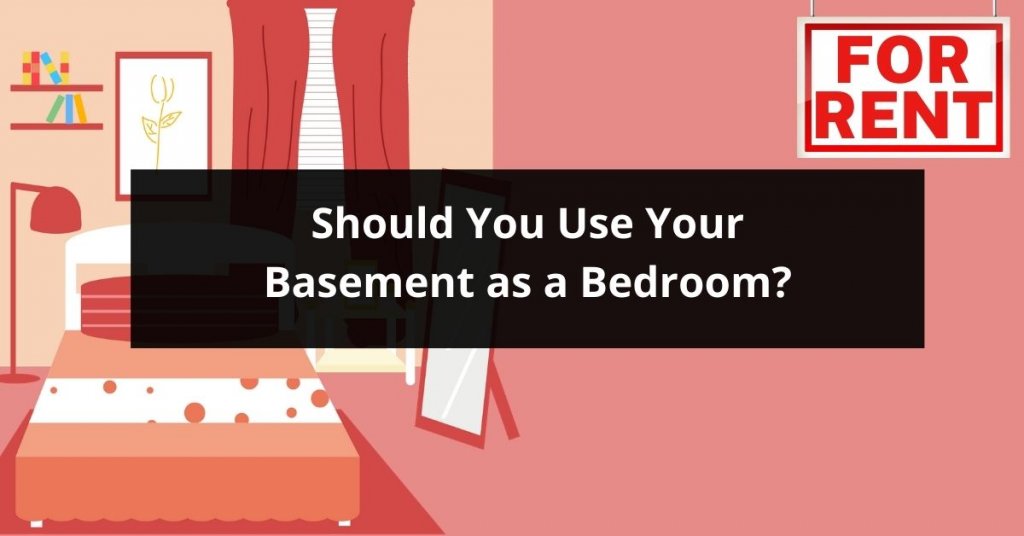Whether you’re a homeowner or an agent looking for how to classify a basement, or you’re a landlord renting out a room in your home, you need to familiarize yourself with the codes surrounding basements. A strategic approach to a makeover can help to add value to the house. Not only that, you may even be able to convert a basement into a rentable space.
Before you run an ad about a basement bedroom for rent, you need to make sure what you have to offer qualifies as a basement. We’re here to help guide you through this topic and help you understand whether or not a basement can qualify as a bedroom.
What qualifies a basement as a bedroom?
For a basement to qualify as a bedroom, it needs to meet the criteria provided by local code enforcement offices. You should know that laws are subject to variation due to local regulations, and what is required in some places may not be in others. That means you do need to do some research.
However true that may be, the fact is that the general outline of what a basement bedroom must require is similar in all areas.
One of the most essential things a basement must feature to qualify as a bedroom is windows. At the very least, you can expect to have to include a few windows with a surface area of about 6 feet. The windows cannot sit more than 44-inches above the ground and must be paired with an oversized window well on the outside, if applicable. This allows the window to bring in natural light and act as an exit in an emergency.
That’s not all, though. A basement must meet a few more basic living standards to qualify as a bedroom. That means you will need adequate heating and ventilation, a minimum size of 70 square feet with 7 foot high ceilings (depending on local code), and a finished appearance. Sufficient power outlets, a radon test, and a proper staircase are also necessary.
Again, local codes might entail more, and you must research to find out what you need to include for your basement to qualify as a bedroom. No matter where you are, though, it’s never as simple as setting up a cot in an unfinished basement.
Do you list a bedroom basement as an extra bedroom or another room when listing the house for sale?
You can list the basement bedroom as an extra bedroom when listing the home for sale so long as it meets local codes. However, you can’t expect it to add the same amount of value as a similarly-sized bedroom that’s above-ground.
On average, basement bedrooms bring in roughly 50-70% of the value an above-ground room does. Ultimately, it might not be worth refinishing the basement to qualify as a bedroom if you’re hoping to increase your asking price for the property.
Can you rent out a basement bedroom legally?
As long as your basement meets local living standards and it’s permitted to do so in your area, you can rent it out as a bedroom. Of course, you need to act professionally and report the income as taxable revenue as well, but that’s about the extent of the legal end of things.
Keep in mind that you may be giving up a valuable portion of your home by renting out your basement. For many, the basement doubles as a living space, and you can no longer use it as such with tenants in place. Furthermore, you may not be able to use it to store goods or belongings any longer and will need to use another space for that.
That’s not to say that renting a bedroom basement isn’t a great way to generate income, though. A particular benefit is that your role as the landlord is also beneficial to you. Performing repairs is not dependent of a separate budget. Instead, the funds come from the money you are already putting aside for your own home instead of another property.
Can you turn a basement bedroom into an apartment?
Converting a basement into a bedroom is one thing. Converting it into an apartment is another. There’s a lot more to take into consideration if you’re considering this option.
Again, we cannot stress enough to refer to local zoning laws and codes before getting started. Standards and practices can vary significantly from one area to the next. A good place to start would be the title company that handled the settlement on your home. They will have the relevant zoning information on your property and will be able to direct you to the correct government agency or individual(s) who can properly answer of whether your home is zoned to have a basement apartment for rent.
At the very least, a basement must include a kitchen, dining area, a full bathroom, a living room, a bedroom, and a closet/storage space in order to qualify as an apartment. Furnishing, flooring, lighting, and living space are also of concern.
That’s not to say it’s impossible, but it does require a lot more work and money to turn a basement into an apartment. Many homes simply do not offer enough room for this to be possible, and you’ll need to work with local governing bodies or contractors to determine if it’s an option for you.

